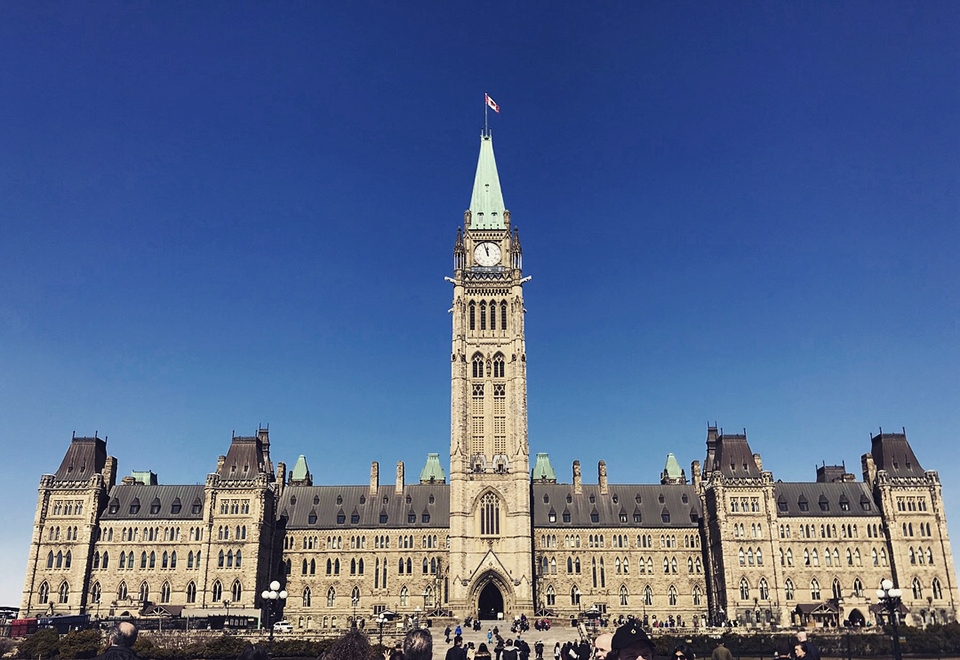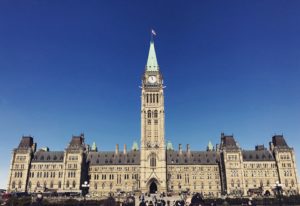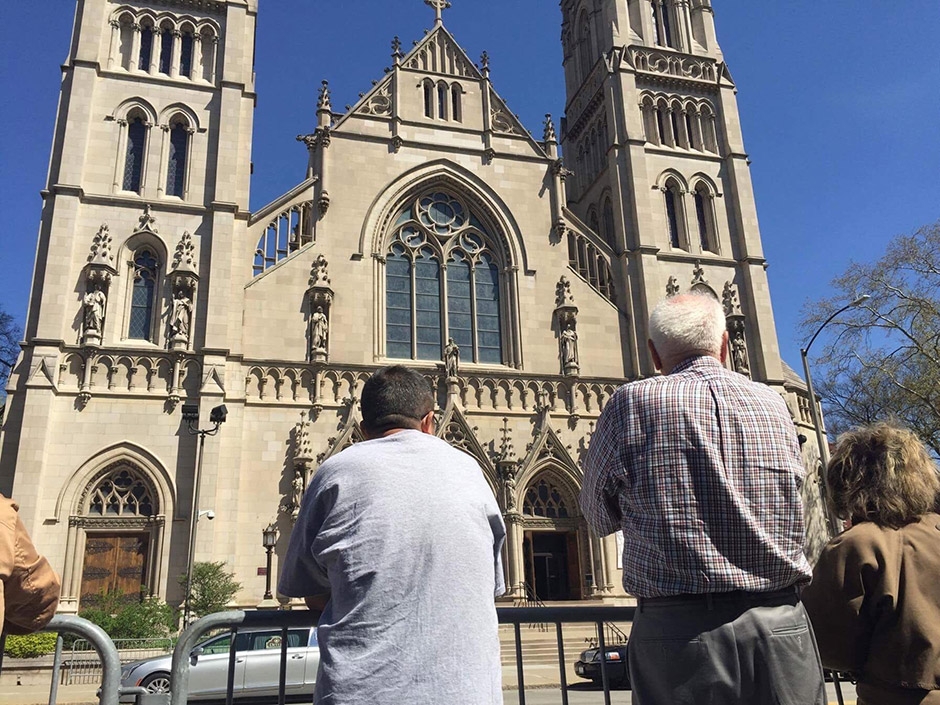
The Canadian Parliament in Ottawa is the scene of preparations for a nationwide legalization of recreational marijuana sales.

The Canadian Parliament in Ottawa is the scene of preparations for a nationwide legalization of recreational marijuana sales.
Raymond Arke | News Editor
04/05/18
OTTAWA — Right before Easter Break, a panel at Duquesne looked at marijuana policy in the United States and how the media covers it. As controversy surrounds the ongoing state-by-state legalization of medical and recreational marijuana use in the U.S., the country’s northerly neighbors are planning to legalize the drug recreationally across the entire country this summer.
Five members of The Duke took a trip to Canada over Easter Break and saw a country that was already changing. The differences between how America is still grappling with the drug and Canada’s approach were readily apparent.
Medical marijuana has been available throughout all of Canada since 1999, according to the Canadian government. Health Canada, the government agency which oversees the medical marijuana industry, has authorized 97 different producers. These companies can grow, manufacture and sell marijuana to eligible people, according to the government site.
These Canadian companies have become valuable investments, with many being publically traded on the Canadian stock market. One company, Canopy Growth Corporation, has the ticker symbol of WEED. As of April 3, it trades for around $20 a share in U.S. dollars. According to an April 3 article published by the financial news outlet MarketWatch, the entire Canadian marijuana industry has a stock market value of around $23 billion in U.S. currency.
Marijuana’s development as a business has led to it being taken seriously by the Canadian media. On a tour of The Globe and Mail, one of Canada’s premier newspapers, Matt Frehner, head of visual journalism, said that the paper covers the industry extensively. According to Frehner, reporters treat marijuana like any other business, covering its ups and downs.
The Liberal Party, led by Prime Minister Justin Trudeau, advanced legislation through the Canadian Parliament that will make recreational use of marijuana legal nationwide possibly by August of 2018. That step will make it the first of the so-called Group of Seven industrialized democracies — Canada, Italy, France, Germany, the United Kingdom, the U.S. and Japan — to make the national switch.
Canada will strictly control recreational marijuana once it is rolled out. Draft rules released by Health Canada on March 19 propose that there will be “requirements for packaging and labelling of cannabis products to minimize their appeal to children and youth, protect against accidental consumption and help inform consumers of the risks and harms of cannabis use.”
Some of these proposals include keeping images and graphics off the bags and creating containers that are child-resistant. Additionally, the Canadian government will still license and oversee the recreational industry.
Legalization of the drug is popular with the public in Canada. According to an article in Maclean’s, a Canadian news magazine, a 2017 survey done by a Canadian university found that 68 percent of respondents favored legalization.
The widespread support mirrors the U.S., where 61 percent of Americans favor legalizing marijuana, according to a poll by the Pew Research Center. However, the efforts to do so in America, even for medical use, have been slow-going.
A panel on March 26 sponsored by the Duquesne chapter of the Society of Professional Journalists addressed the cultural and political environment around marijuana inside the U.S. So far, nine states have fully legalized the drug, while it is legal for medical use in 29. Much like Canada, the states have set up strict oversight over the businesses by requiring age limits and limits on how much one can purchase, among other regulations.
While the panel discussed the general public support and acceptance of marijuana use, especially for medicinal purposes, they acknowledged the current presidential administration’s desire to crack down against it. Noelle Phillips, a reporter for The Denver Post, discussed how the legal marijuana business in Colorado is cash-only, since banking and credit companies risk federal interference if they are involved with drug money.
Unlike Canada, where the majority party is working towards nationwide legalization, the Justice Department under Jeff Sessions is revising lax Obama administration rules towards legal marijuana states.
According to a January 2018 Vox article, he withdrew an Obama-era memo that promised states the federal government would run little interference in their local pot industries. The withdrawal of the guidelines will allow the federal government to go after marijuana businesses in states where it is legal.




